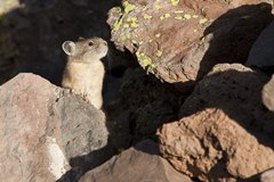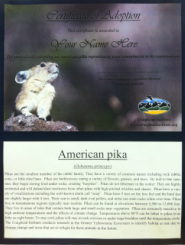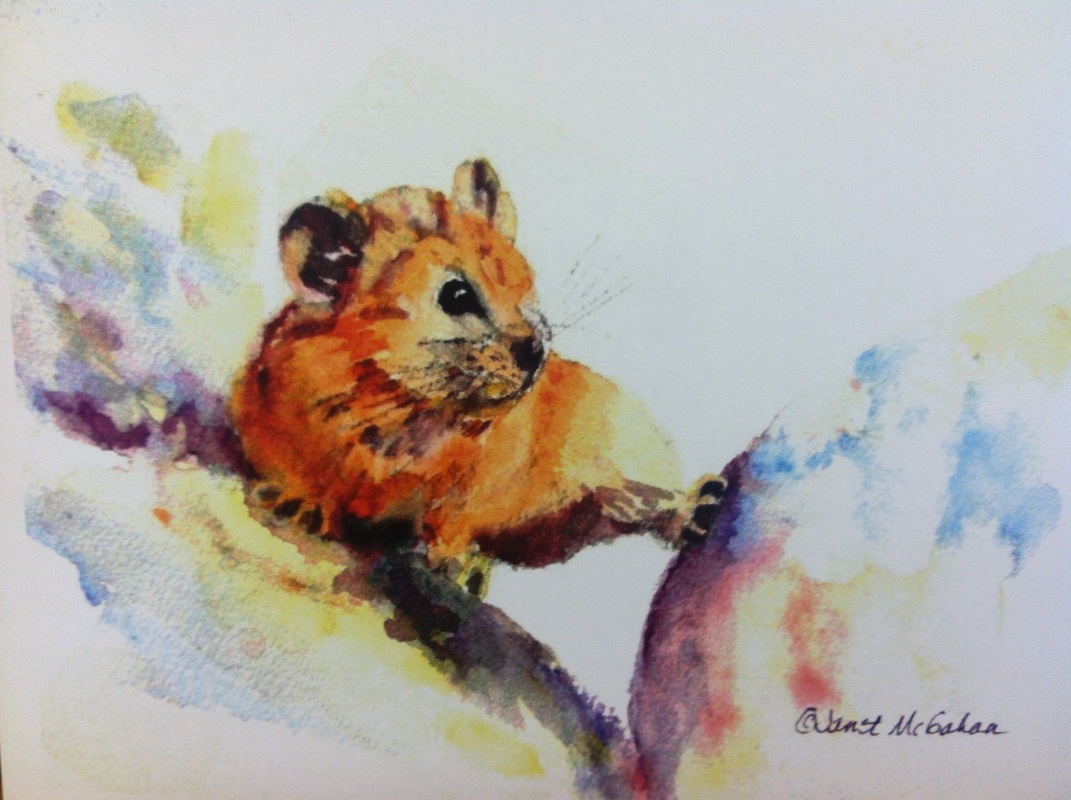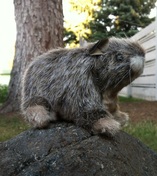Adopt a Pika Today!
Help Support Craighead Institute's Plight of the Pika Campaign.
Your donation dollars go towards our pika research in the Greater Yellowstone Ecosystem.
Craighead Institute is using habitat suitability modeling to identify current pika habitat and
to predict habitat under future climate scenarios. Give a gift that makes a difference!

Warning: Choking Hazard - Adoption pika plushes contain small parts not for children under 3 yrs.
|
To order by phone: 406.585.8705 ~ Office hours: M-F 8:30 - 5:00 pm
The Craighead Institute is a registered 501(c)3 nonprofit organization. Your generous donation is tax deductible.




